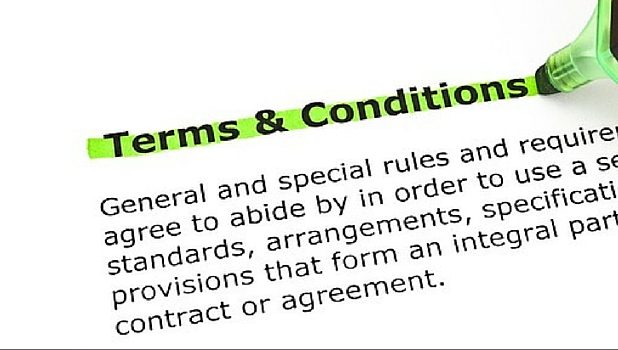- Milton Keynes 01908 660966
- Northampton 01604 828282

The on-going investigation into the drugs maker GlaxoSmithKline regarding allegations of bribery highlights the need for commercial organisations to consider their compliance with anti-bribery legislation.
In the United Kingdom, the Bribery Act 2010 came into force on 1st July 2011 and heralded a new regime designed to modernise and simplify the law on bribery to allow prosecutors and the courts to deal with it more effectively.
Under section 1 of the Bribery Act, a person (P) is guilty of an offence where they offer, promise or give a financial advantage to another person in two cases:
- Case one, where P intends the advantage to bring about an improper performance of a relevant function or an activity by another person or to reward such improper performance
- Case two, where P knows or believes that the acceptance of the advantage offered, promised or given, in itself constitutes the improper performance of a relevant function or activity
Section 2 also provides for offences relating to being bribed and which can make the recipient or potential recipient of a bribe liable to prosecution.
Most concerning to commercial organisations is perhaps that section 7 of the Bribery Act provides that a commercial organisation (C) is guilty of an offence if a person associated with C bribes another person, intending to obtain or retain business or a business advantage for C. The offence can be committed in the United Kingdom or overseas.
A commercial organisation can, however, defend itself under section 7 if it can show that it had in place adequate procedures designed to prevent bribery. Within this in mind, commercial organisations should:
- Prohibit bribery in any form, whether direct or indirect and by or for the organisation
- Commit to implementing systems to counter bribery
At Franklins, my team and I, in liaison with our Employment division, regularly advise businesses on anti-bribery compliance and putting in place suitable systems and policies. If you think you require assistance with the anti-bribery legislation or would like to clarify any particular matter – please feel free to contact me on 01908 660 966 or e-mail me at christopher.buck@franklins-sols.co.uk.
If you have a quick question or want to comment – please drop your comments below and I’d be happy to help as much as I can.


As a rule of thumb, I would advise for suppliers to have their terms and conditions regularly reviewed to take account of legislative changes. However, for those who undertake website sales with consumers or who enter contracts with consumers away from their premises, it is now even more advisable for such a review to be undertaken.
This is because of the fact that the Consumer Contracts (Information, Cancellation and Additional Charges) Regulations 2013 are now in force. These Regulations apply to website consumer sales as distance contracts as well as off-premises contracts with consumers and replace:
- the Consumer Protection (Distance Selling) Regulations 2000; and
- the Cancellation of Contracts made in a Consumer’s Home or Place of Work etc. Regulations 2008.
Key provisions of these Regulations include:
- a right for consumers to cancel the contract within a cooling off period of 14 days (compared to the previous period of 7 days); and
- where a consumer has a right to cancel a contract, a requirement that the trader provides the consumer with a model cancellation form.
In view of these Regulations, my advice is that:
- businesses selling to consumers through websites should review their terms of sale and procedures to ensure they are compliant; and
- businesses who enter contracts with consumers away from their business premises, such as estate agents who enter agency agreements with house sellers in their home, should also review their contracts and procedures to ensure they are compliant.
If you are in a position of needing to review your terms and conditions, or haven’t done so in a long time – please feel free to contact me on 01908 660966 or by e-mail at Christopher.Buck@franklins-sols.co.uk.

It has long been considered that malpractice is widespread across the park home sector and the Government has now acted by introducing the Mobile Homes Act 2013 and a series of Regulations. The aim of this legislation is to improve the position of mobile home occupiers by:
- Improving site rules and the position with regard to pitch fees.
- Removing the requirement for a site owner to consent to a sale or gift of a mobile home.
Approximately 85,000 households live on about 2,000 mobile home sites in England. In respect of site rules, the clock is already ticking in terms of the deadline for site owners to consult with mobile home owners before their existing rules cease to have effect and it is important that they now act quickly to receive specialist advice.
Those who operate mobile home sites now need to understand this new legislation and ensure that they take steps to act in compliance with the requirements placed upon them. A summary of the impact of the new Regulations and how we can assist as legal advisors is below:
1. THE MOBILE HOMES (SITE RULES) (ENGLAND) REGULATIONS 2014
There will be a need for site owners to comply with actions and timescales laid down by these Regulations otherwise they will have no site rules which they can validly enforce after 3rd February 2015.
Action is required by site owners at the very latest by 1st October 2014. In the absence of action in accordance with these Regulations, existing site rules will be of no effect after 3rd February 2015.
We can advise on the actions and timescales which site owners are required to take and meet and put in place an appropriate action plan. We can also provide the prescribed notices which site owners must serve upon mobile home occupiers under these Regulations.
2. THE MOBILE HOMES (PITCH FEES) (PRESCRIBED FORM) (ENGLAND) REGULATIONS 2013
There will be a need for site owners to comply with these Regulations in order to validly undertake any review of pitch fees for any individual mobile home occupiers.
We can advise on the process which site owners are required to adhere to and, again, we can also provide the prescribed notices which site owners must serve upon mobile home occupiers under these Regulations.
3.THE MOBILE HOMES (SELLING AND GIFTING) (ENGLAND) REGULATIONS 2013
The involvement of a site owner in a sale or gift of a mobile home now places them at risk. These Regulations are framed to exclude site owners from the process and contain criminal offences.
We can advise site owners on what they can and cannot do regarding a sale or gift of a mobile home, as well as what they can and cannot expect to receive from any seller and buyer, or any provider and recipient of a gift.
We are experienced in this field, and are here to help..
If you are a site owner and feel that you need any guidance on the new legislation then please feel free to contact me on 01908 660966 or by e-mail at Christopher.Buck@franklins-sols.co.uk. I can offer prompt and tailored advice to site owners on an affordable fixed fee basis, whatever the location of their park in England.


[This is a guest post from Colin Howe, a tax specialist at Hillier Hopkins. Colin co-presented a seminar with me on how to build value into a business. In this post he shares some of the insights that he presented on the day to the attendees.]
A big thank you to Chris and the Franklins team for inviting me to write a post for them on this subject.
One of the issues that is constantly relevant to any business owner – even if day to day concerns sometimes get in the way – is the value of that business.
Notwithstanding the variety of methods that exist, the truth is that valuation remains “an art rather than a science”.
So, as it’s important, what are some of the things that can be done to optimise the value of your business? It’s worth thinking through a number of key issues:
1. Think about your objective
The optimal value for your business will depend upon what aim you’re trying to achieve. If you want to sell your business in the short-medium term, then maximising the value is likely to be important to you. Of course, in the old phrase, a business is only worth what the purchaser will pay, so many of the ideas I mention below will be highly relevant. However, if any valuation is being prompted by a dispute between shareholders, then you may not wish the value placed to be the highest possible one.
If you’re trying to clarify a tax obligation, then it may be more beneficial to – completely legitimately and appropriately – value on a different basis.
We help clients in all these scenarios, but in each case understanding the aim is key.
2. Sustainable profit
In some cases valuation may be undertaken based on the net assets of the business. The business sector you operate in may also have an impact. But most of the time, any purchaser will be interested in future profitability. So it is very likely that the valuation will be strongly influenced by the price earnings ratio. So, for some companies, the starting point may be (say) 6 times annual profit – but the sustainability of profit will have a profound effect.
Purchasers will look at the history of profitability and dividend payments, and the regularity and future predictability of the pattern they see. Really significant value can be generated by a business and its owners, not only when considering a sale, but throughout the life of the business if some very achievable and appropriate ways to boost profitability are considered.
As well as growing a strong top line, and putting in place effective cost controls (of course) there are other influences on this. It’s useful to consider some less obvious items as highlighted below:
3. De-risking
Put yourself in the shoes of a prospective purchaser. High uncertainty is normally bad. One useful way of improving the sustainability of profits and to reduce the uncertainty of future net revenue is to “de-risk” them.
Examples of ways in which you can de-risk your business include:
- Protecting Intellectual Property. Any buyer will want to be comfortable that what they are buying is protected. Currently, this also has an additional benefit in many cases as registering a patent allows for tax relief under the Government’s “Patent Box” scheme.
- Key staff. What would be the impact on your business if key staff left? Share incentive schemes and other methods of reducing this risk may be appropriate. These can be geared to specific targets being reached.
- Customers. Being over-reliant on a small number of customers that represent very high proportions of your revenue constitutes a high risk, not only when considering sale but in the ongoing health of your business. There is also high risk if all your customers are in one sector. So it may be worth extending and diversifying your customer portfolio.
4. Other areas to consider
Other areas which can be highly relevant to optimising profitability and/or the value of your business include:
- Reviewing relationships with suppliers to ensure the best terms (but also reducing any risk of over-reliance on one supplier).
- Good management information systems may help you in various ways – for example they can enable you to far better understand the underlying profitability of specific customers, products or your business as a whole
- Appropriately identifying and taking advantage of relevant tax reliefs that may be applicable to your business
- Understanding the impact of your premises on your value. For some businesses and purchasers premises may be highly valuable; in other situations they may have no value as the purchaser has no need of them. It is worth thinking this issue through and determining how premises should be reflected on the balance sheet.
If, with the aims you have in mind, you’d like to informally discuss whether any of these areas may be relevant to you, please feel free to contact Colin directly on 07990 500160 or by e-mail on colin.howe@hhllp.co.uk













